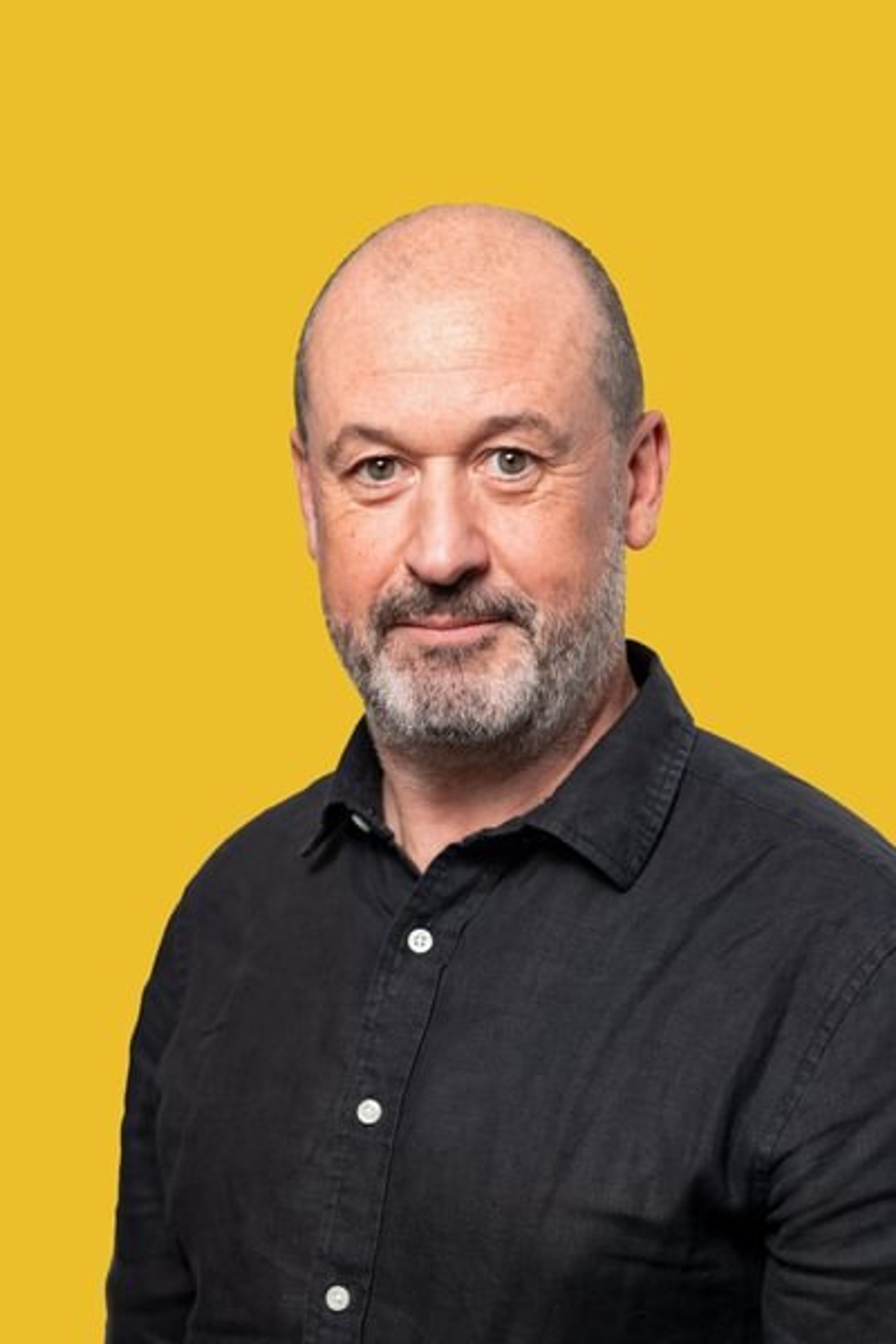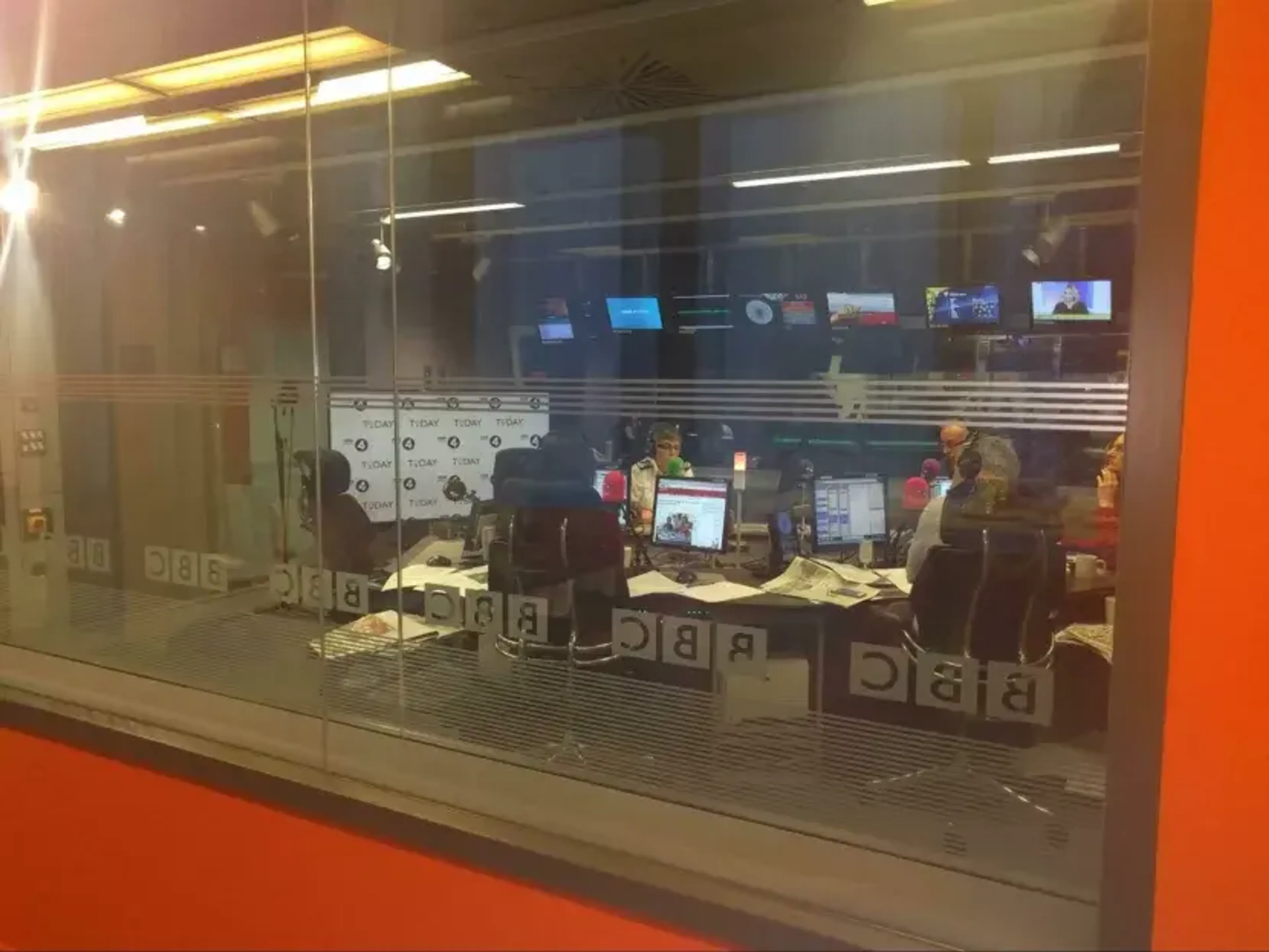
Mike Bracken CBE
Founder

Over the Christmas break I was invited to join Radio 4’s Today Programme to talk a bit about technology in the public sector. (Full disclosure: my friend and former colleague Martha Lane Fox was guest editing the show that morning). Mishal Husain interviewed me for about 5 minutes.
Rather than just publish a plain transcript, I thought it would be better to annotate and add to it. Radio interviews are necessarily rushed, and it’s hard to say everything you want to say in the time that the interviewer gives you. If you start blathering, you’ll quickly get cut short.
So this transcript includes some additional thoughts, links and comments that I’ve added after the fact – they’re the indented, italicised bits. Think of this as the 12 inch remix of the original interview.
Mishal Husain: The time is 16 minutes to nine. Technology can be used to solve the Irish border and avoid the backstop. That’s an assertion we’ve heard a lot throughout the Brexit negotiations, but what technology might that be? At the Conservative conference the Chancellor answered a question about the border by saying that the most obvious technology becoming available was “blockchain”, which is in definition, a way of recording transactions across a system of linked computers.
This definition of blockchain made me smile. Blockchain is a notoriously complicated thing to explain to non-technologists. The fact that it is often poorly understood and poorly explained is one reason why politicians are so keen on adopting it, something I try to cover later in the interview. I liked that the BBC made an effort to simplify it, and although I’m not sure I agree with what they came up with, I’d struggle to come up with something equally simple and equally brief.
Mike Bracken is former head of the Government Digital Service and now a partner at Public Digital, a consultancy which helps governments to transform their digital services. Good morning. What do you think of the idea of blockchain being a way to solve the Irish border issue?
Mike Bracken: Blockchain’s an emergent technology and I think it’s fanciful that it’s going to solve a very real and messy problem like a border and the transactions of people and things across that border.
“Fanciful” is the polite way of putting it. Blockchain simply isn’t the right tool for the job, and won’t do what politicians hope it will do. Border control isn’t that computer-friendly in the first place. It’s a fiddly, context-specific problem. It’s more exceptions than rules.
MH: Because it’s not yet at the right stage, or because you just don’t think it would be applicable?
MB: Probably both. As I say, it’s an emerging technology probably best used in low-trust environments where you need to monitor transactions of people and things. So I understand why people might say “Let’s use this on a border,” but practically it’s not ready to do that and borders are long and messy things involving much complexity and human nature, and blockchain isn’t very good at things like that.
It’s very good for financial transactions in low-trust environments, and that’s not synonymous with a border.
And as I added above: blockchain is just the wrong tool for the job, on a conceptual level. Even in coutries with low-trust borders and sometimes dysfunctional service provision, experts in those regions are still sceptical. My old colleague from the IADB Carlos Santiso has written more about this.
MH: What sort of technology might help in that context?
MB: In borders? People. Databases. Records of people. We already have many of those in our systems of government, we don’t really have a problem with policing a border. I think looking at an emergent technology solution is a neat way of avoiding some of the real and messy problems that we may have in society generally.
I’m conscious that one of my answers to this question about technology was “people”, by which I meant teams. Given time, good leadership and funding, there might well be a way to simplify border crossings (not just between the UK and the EU, but between the UK and everywhere) using simple, reliable, proven technology, applied in the right way to meet user needs identified by research. A simple database, supported by the right team, can change the world.
MH: Do you think politicians often throw those sorts of in – “We’ll use technology to solve it” as an easy answer?
Oh good heavens yes. All the time.
MB: Of course, I think Philip Hammond said when he said that at the conference that he didn’t really understand blockchain. And that’s a typical politician’s answer with many of our technologies. Part of the problem actually is that they’re often sold these technologies by vendors who’ve got a big interest in a big IT solution, but much of the best ways we can solve our political and social problems is with civic technology: open, simple, cheap technologies that enable 23 million people to go for a run with Parkrun, for example. That technology was developed by only 20 people.
The same technology that allows people to create records of World War I graves and map them to local streets, which is one of the biggest applications we’ve made in this country.
MH: I wonder whether you think it’s a problem that those sorts of solutions are coming from individuals or private companies rather than from government? We’re still a long way — one of the most useful things would be to be able to have all your medical records available on an app on your phone. It feels like we’re a long way away from that.
I should have started my answer to this with: “But loads of good solutions are already coming from government.” I could have given a dozen examples from the UK, and plenty more from places like Peru, Mexico, Canada, the list is very long. On Mishal’s second point, I should have talked about the excellent work that’s already underway in the NHS. And the fact that Health Minister Matt Hancock has made a point of hiring specialist technology advisors like Hadley Beeman (and, since this interview happened, Terence Eden), to help him make better decisions about open standards, technology, data, and digital transformation. A model many other ministers would be wise to copy.
MB: Sure. Well, like many governments around the world, in the UK we are really good at civic technology, we’re really good at developing social technologies. Like many governments, we’re still trapped in a decades-long era of “big IT” where we think a big solution that takes many years to develop will be a panacea for problems that we have in society.
And actually what’s happening around the world is small teams of people are creating really interesting services using open and often free technology, and making much better public services than years of —
I intended to finish this sentence with: “years of big IT projects, planned in minute detail in advance.” More leaders are grasping the power of modern, internet-era ways of working, and granting the teams that work for them permission to work that way. That’s radical organisation change in action.
MH: Is the answer then for government to jump on those ideas and then spread them?
MB: We have done in this country. We are very good in our government. We have the Government Digital Service that pioneered this, this is now the model around the world for many countries. And our government is really good at this stuff. But there’s still, at the political level, a tendency to grab to a “big IT” solution that will solve all the problems, when actually the difficult messy business of creating these things with really talented teams of technologists in public institutions such as this one, and also in private institutions as well. And also in a very important sector, the civic technology sector, which links the two.
Again: people. Teams. Funding. Trust. All of this, on top of good understanding of appropriate technology, rather than shaky understanding of the latest technology.
MH: Mike Bracken, thank you very much.
Thank you Mishal for your patience and reassurance, and Martha for inviting me on. It was an enjoyable interlude during the Christmas break.

Founder